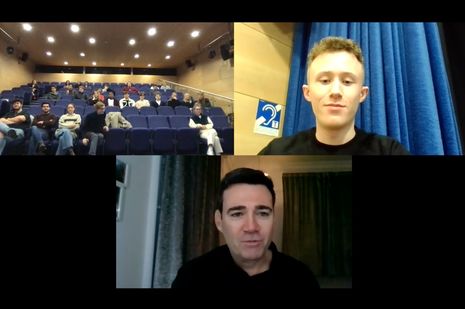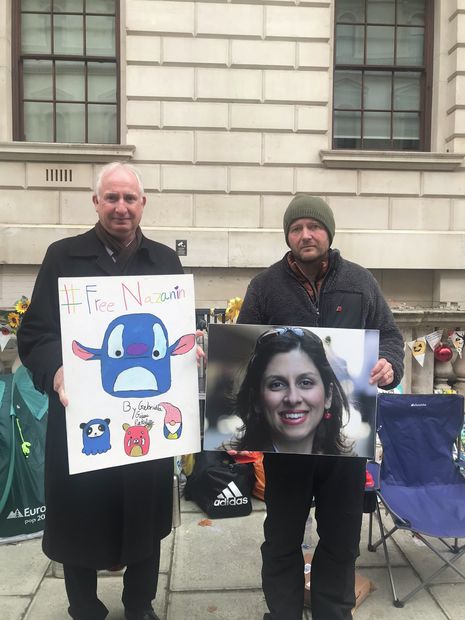Andy Burnham: ‘Give devolution a chance’
The Mayor of Greater Manchester spoke about devolution, ‘levelling-up’ and identity politics in a Q&A event hosted by Cambridge University Labour Club

Andy Burnham has spoken about the benefits of increased devolution of power to regional authorities in England, imploring students to “give it a chance” at a Q&A session hosted by the Cambridge University Labour Club on Tuesday evening (30/11).
The Mayor of Greater Manchester attended the event at Christ’s College via Zoom, answering questions from the Labour Club Committee host before taking questions from the audience.
The former Fitzwilliam College student described himself as politically “quite tribal” during his time at Cambridge, but that he has learned to become less so over the course of his career, saying that politicians “should always be open to new influences”, as “you actually connect more with people if they think you’re not just toeing a line or following a script”.
One of the main topics of discussion on the night was the issue of “levelling-up”, or investing in, different regions of the country which have been seen as “left behind”, particularly in the north of England. Having served as Mayor of Greater Manchester since 2017, Burnham was keen to discuss the importance of local issues such that as bus fares and rail links, arguing that Greater Manchester should have a “London-style transport system” in order to connect the city of Manchester to the “proud Lancashire towns” surrounding it.
However, he also emphasised that he did not simply wish to make his area “the London of the north”, expressing a need to “bring the cities of the north closer together”.
He cited increased power for regional authorities as a key component of this “levelling-up”; while admitting that he is “still on a bit of a journey with it with the public”, he believes devolution has been a positive development in Greater Manchester and that he would “proceed with devolution across all parts of England.”
A former Labour MP for Leigh from 2001 to 2017, he also commented on the effect his role as Mayor of Greater Manchester has had on his own career: “I feel more liberated now […] than when I was in Westminster under the party whip system.”
Another key topic up for discussion was the concept of the “red wall” of traditionally Labour-supporting areas in the north and Midlands, many of which have recently swung to support the Conservatives. When asked about whether the notion of a “red wall” was a helpful concept, Burnham replied that there is ‘something dangerous about it’ due to an “implication in the media that people in the red wall are xenophobic, harsh and a bit thick” when in fact “the complete opposite is the case”.
Burnham described “red wall” constituencies as “economically quite left wing in their outlook” but “small-c conservative”. He suggested that an increasing focus on identity politics has led people to feel that Labour is “not speaking to them anymore”, and that without wanting to encourage “the caricature of the red wall voter, winning back those places is part of what the Labour Party needs to do.”
When asked by an audience member whether he believed it was necessary to “pick and choose” between those who may feel represented by identity politics and conservative working-class voters, Burnham replied: “You have to do both […] you have to have dialogues with all the communities you represent.” He commented on the “polarising effect” of social media and the negative impact of politicians “playing to bases”.
He emphasised the need to “find areas of common concern” to bring about a “unifying discourse that brings all voters together.”
 News / Colleges charge different rents for the same Castle Street accommodation2 March 2026
News / Colleges charge different rents for the same Castle Street accommodation2 March 2026 News / News in Brief: waterworks, wine woes, and workplace wins 1 March 2026
News / News in Brief: waterworks, wine woes, and workplace wins 1 March 2026 News / Climate activists protest for ‘ethical careers policy’1 March 2026
News / Climate activists protest for ‘ethical careers policy’1 March 2026 News / Angela Merkel among Cambridge honorary degree nominees27 February 2026
News / Angela Merkel among Cambridge honorary degree nominees27 February 2026 News / Private school teacher who lied about Cambridge degree barred from teaching27 February 2026
News / Private school teacher who lied about Cambridge degree barred from teaching27 February 2026










